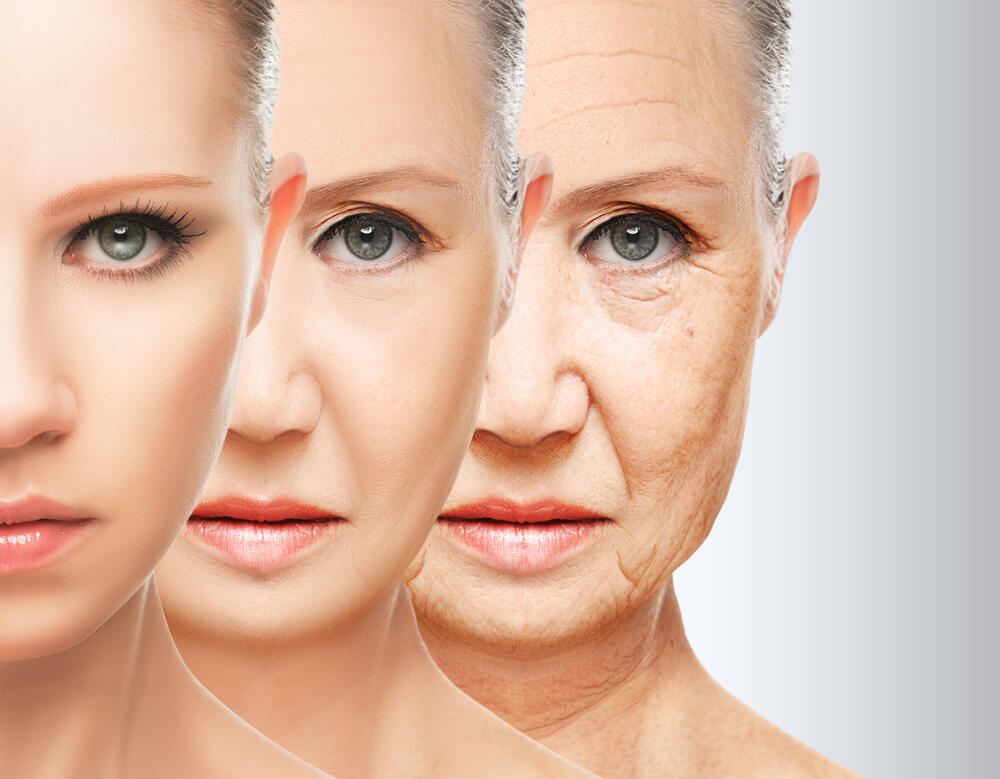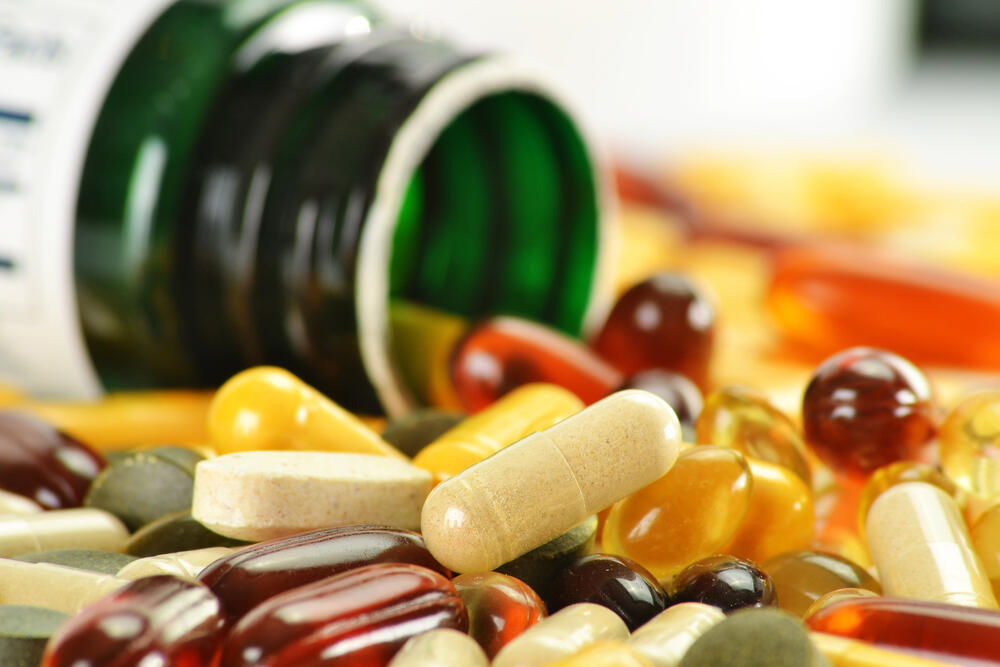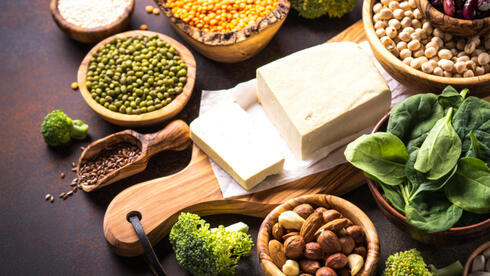Over the past decade, more and more people have chosen veganism — a diet based entirely on plant-based foods, with no meat, fish, dairy, eggs or honey. For many, it’s not just a dietary decision but a full lifestyle rooted in values such as animal welfare, sustainability and reducing environmental impact.
When properly planned, a vegan lifestyle can be healthy, ethical and environmentally friendly. It may reduce the risk of chronic diseases, improve quality of life and lessen environmental harm. However, it requires careful attention to essential nutrients and appropriate supplementation. With the right knowledge, quality products and advanced food technologies, it’s possible to enjoy a complete, balanced and truly healthy vegan diet.
5 View gallery


Veganism, when well planned, is a healthy lifestyle choice
(Photo: Shutterstock)
Veganism goes beyond avoiding meat — it excludes all animal-derived foods. Vegetarians may eat dairy and eggs, but vegans avoid these too. The term “vegan” was first coined in 1944 by Donald Watson in England, driven by an ethical commitment to prevent unnecessary animal suffering. A balanced vegan diet focuses on nutrient-rich foods like legumes (beans, lentils, peas, chickpeas, soy), whole grains, fruits, vegetables, nuts and seeds. Today, plant-based dairy and meat alternatives allow for a fully vegan lifestyle without compromising nutrition.
Vegan diets are linked to lower levels of LDL (“bad”) cholesterol, triglycerides and total cholesterol. A 2024 study on twin pairs found that participants on a vegan diet for eight weeks experienced significant reductions in LDL cholesterol and fasting insulin levels compared to those on a non-vegan diet. Additional studies show veganism may reduce the risk of high blood pressure by up to 75% and the risk of death from cardiovascular disease by 17%–24%. These effects are largely due to a vegan diet’s high fiber content, low saturated fat and abundance of antioxidants.
5 View gallery


A vegan diet may reduce the risk of death from cardiovascular disease
(Photo: Shutterstock)
Type 2 diabetes management
A well-planned vegan diet can improve blood sugar control in people with type 2 diabetes. Studies show it helps reduce fasting glucose and HbA1c (glycated hemoglobin) levels, and can also lower the need for diabetes medications. A recent meta-analysis found that adopting a plant-based diet lowers the risk of developing type 2 diabetes by 20%.
Weight and body composition
Vegans typically consume fewer calories and more fiber, while also eating less saturated fat than those on animal-based diets. Comparative studies of various diets found that participants on vegan diets had the most significant weight loss.
Observational studies indicate that vegans and vegetarians have a lower risk of developing and dying from certain cancers. This is due in part to the high levels of fiber, phytochemicals and antioxidants found in plant-based foods, which help protect against cancer.
Slower biological aging: A 2024 study found that sticking to a vegan diet was associated with reduced markers of biological aging.
Reduced inflammation: Veganism may lower inflammatory markers in the body, which are linked to chronic disease.
Relief from arthritis symptoms: Research shows vegan diets can reduce joint pain, swelling and stiffness in people with arthritis.
5 View gallery


Veganism slows down biological aging
(Photo: Shutterstock)
Fruits and vegetables: Eat at least five servings a day and aim for a variety of colors (green, red, orange, purple, white).
Whole grains and legumes: Core sources of protein and fiber — lentils, beans, peas, chickpeas, soybeans, quinoa, buckwheat and whole wheat.
Nuts and seeds: Rich in protein and essential fatty acids — almonds, cashews, peanuts, sunflower seeds and more.
Fortified foods and supplements: Include vitamin B12, calcium, vitamin D and iron as needed.
Complementary protein combinations: Pair foods like rice and lentils, bulgur and peas, or peanut butter and whole grain bread.
Meal planning and variety: Prepare meals in advance and focus on whole foods over processed ones.
Professional guidance: Consult a registered dietitian to ensure a well-balanced and personalized meal plan.
A well-planned vegan diet can be healthy and beneficial, but it requires precision. Studies show that some vegans may experience nutrient deficiencies, simply because certain key nutrients are found almost exclusively in animal-based foods. The most common deficiencies among vegans include:
Vitamin B12 – Not found in plant-based foods
Iron – Present in plants but less bioavailable than animal-based iron
Vitamin D – Scarce in plant sources
Omega-3 (DHA and EPA) – Mainly found in fish
Zinc – Less efficiently absorbed from plant sources
Magnesium – Commonly deficient across the population, not just vegans
5 View gallery


Vitamins, dual challenge
(Photo: Shutterstock)
For vegans, choosing supplements involves a dual challenge: nutritional efficacy and ethical integrity. It’s not enough for a supplement to be effective—it must also align with vegan values. Here are four key criteria to consider:
No animal-derived ingredients – Includes gelatin-free capsules and animal-free production methods
Environmental sustainability – Plant-based ingredients, biodegradable packaging, reduced plastic, and reusable shipping
Cruelty-free – No animal testing, a core ethical principle
High quality and bioactive forms – The biologically active form of a vitamin or mineral significantly impacts absorption and effectiveness
Not all forms of vitamins and minerals are equally absorbed. The bioactive form, protected and enhanced by advanced technology, is key. For example, some B12 supplements now combine the two most active forms for broader support.
Most vitamin D3 supplements on the market are derived from fish liver or sheep’s wool, making them unsuitable for vegans. Many unknowingly consume them, assuming they’re plant-based. In fact, only one form of D3 is truly vegan. It’s important to distinguish between:
Vitamin D2 – Plant-based but less bioavailable
Vitamin D3 – The active form the body uses and the one measured in blood tests
Thanks to innovative technology, vegan D3 can now be derived from lichen, a unique organism formed by algae and fungi in symbiosis that captures sunlight. This makes for a sustainable, animal-free source with no environmental harm.
When paired with liposomal technology, absorption is greatly improved, and the supplement no longer needs to be taken with fatty foods. This creates a truly vegan, effective and biologically accurate solution.
5 View gallery


Vitamin D
(Photo: Shutterstock)
Iron — One of the most common deficiencies, especially among vegan women. The issue? Plant-based iron (non-heme) is poorly absorbed, and standard iron supplements often cause digestive side effects and have low bioavailability. Modern solutions include: Liquid iron with added vitamin C for optimal absorption and liposomal capsules that release iron gradually over 24 hours, reducing side effects and improving uptake.
Omega-3 — The fatty acids EPA and DHA are essential for brain, heart and immune health. While most omega-3 products come from fish oil, there are now alternatives derived from microalgae — the original source of omega-3 in the ocean, which fish consume.
About the authors: Shira Solow, BSc, MPH, is a clinical dietitian and lecturer at Levinsky-Wingate Academic Center. Lilach Serezo is a senior naturopath at ecosupp.

